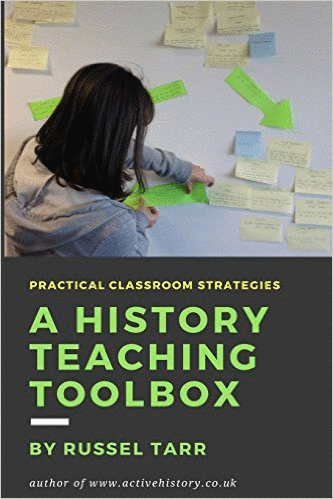World History teaching resources for the high school classroom: lesson plans, worksheets, quizzes and simulation games for KS3, IGCSE, IB and A-Level teachers.
F. So How Should We Tackle the Issue of Causation in Essay Tasks?
Confusion - Chaos, Determinism, Whigs, Annales and Marxists: Click on a link to read a summary |
||||
So how do historians cope with this confusion?
1. Avoid the two extreme views of determinism and chaos theory.
2. Instead, draw elements from both of these extremes.
· Historians will tend to occupy the broad middle ground between these two positions, both chronologically and thematically.
(a) Chronologically - be broad ranging
Details· Like the determinists, historians will look at long term factors (e.g. the Annales School of historians, who consider the impact of geography and climate as a key factor in causation).
· Like the chaos theorists, they will look too at short term factors (e.g. AJP Taylor, who loved to stress the role played by the “Great Man” coming along at the right time).
(b) Thematically – be broad ranging
3. Result of this approach: sophistication rather than paralysis.
· Some people argue that as it is devoid of “final answers”, history is not worth studying. This is like saying that it is not worth forming an opinion on anything because others will always disagree with you. Similarly, you could say that it’s not worth learning to read because there are too many books in the world to get through.
· Nevertheless, by accepting the fact that each event / situation has a massive variety of causes, we run the danger of concluding that none was more important than another. In other words, we fail to draw any sort of conclusion at all, and fail to learn anything from the investigation.
· How do we get around this problem? In other words, how do we identify, group, link, and prioritise our factors?
| < Prev |

© 1998-2025 Russel Tarr, ActiveHistory.co.uk Limited (Reg. 6111680)
1 Torrin Drive, Shrewsbury, Shropshire, SY3 6AW, England
Privacy Policy | Contact






